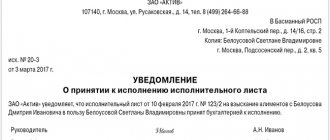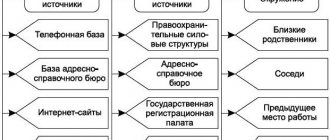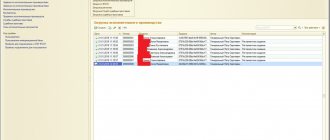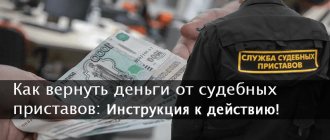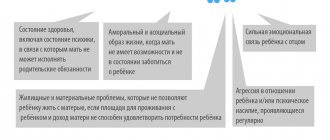Until 2015, a motorist could be deprived of a driver’s license solely for traffic offenses, and only traffic police officers dealt with this issue. In 2021, the bailiff has the right to restrict driving for certain categories of debtors. Such a serious measure, according to legislators, should become another way to influence individuals who evade paying debts under various pretexts.
Driver's License Restriction Law
Since January 15, 2021, the Russian government has developed a system for restricting the validity of a driver’s license, which should be introduced by bailiffs as a last resort measure against a malicious debtor. This became possible after the introduction of innovations to Federal Law No. 229 in the form of additions and changes to the relevant articles of the law. Article 67.1 clearly states cases of deprivation (restriction) of the driver’s license of citizens who are non-payers and debtors who have the status of individual entrepreneurs.
Attention! If you have any questions, you can chat for free with a lawyer at the bottom of the screen or call Moscow; Saint Petersburg; Free call for all of Russia.
Restriction on the use of a driver's license is a temporary measure of influence on debtors during the period of repayment of the debt. This means that a person will not be able to drive any vehicle, whether owned or registered to another person. It turns out that for the application of this clause of the law, the form of ownership does not matter. Moreover, in 2021, this applies to any type of transport: land, water and even air, if a citizen owns one.
How to regain the ability to drive a car
If the driver wants to regain the right to drive a vehicle, he must pay off the existing debt. There are no alternative ways to remove restrictions on the use of a driver’s license.
After the debt obligations have been fulfilled, you need to contact the bailiff and inform about the repayment of the debt. The FSSP employee will check the accuracy of the debtor’s information. If the citizen has truly fulfilled his obligations, the restriction will be lifted. The next day, the information will be sent to all traffic police departments, and the person will again receive the right to drive a car.
Practice shows that the system does not always work well. The procedure for lifting the restriction may take a long time. For this reason, a citizen must be prepared for the fact that it will take several days . To avoid problems, it is recommended to repay debts on time.
For what debts can a driver's license be revoked in 2021?
A new article 67.1 has been added to the text of the federal law “On Enforcement Proceedings”. It contains part 2, which lists cases of debt obligations for which the judicial executive authorities may introduce restrictions on the use of a driver’s license in 2021. Such cases include the following types of debt obligations:
- unwillingness to pay child support;
- non-payment of compensation for injury to health or loss of a breadwinner in the family;
- non-payment of moral and property damage caused during the commission of a crime;
- ignoring non-property requirements regarding the upbringing of children;
- avoiding payment of administrative fines for traffic violations.
All this is provided that the amount of debt must be higher than 10,000 rubles.
In what cases can it be avoided?
Compliance with the provisions of the Law is mandatory for everyone. However, Federal Law No. 229 “On Enforcement Proceedings” establishes categories of citizens who will not be deprived of the opportunity to drive a car, regardless of the existing debt. According to Part 4 of Art. 67.1 of the law, rights are not limited in the following situations:
- if the establishment of such a restriction deprives the debtor of the main legal source of livelihood;
- if the use of a vehicle is the only means for the debtor and his family members living with him to ensure their livelihoods, taking into account the limited transport accessibility of their place of permanent residence;
- if the debtor is a person who uses a vehicle due to a disability , or the debtor’s dependent is a person recognized in the manner established by the legislation of the Russian Federation as a disabled person of group I or II or a disabled child;
- if the amount of debt under the executive document (executive documents) does not exceed 10,000 rubles .
- if the debtor is granted a deferment or installment plan for fulfilling the requirements of the writ of execution.
In all other cases, the driver will be deprived of the ability to drive the vehicle.
The procedure for applying the law on deprivation of rights
Before deprivation of rights for debts in 2021, bailiffs contact the debtor and insist on paying off the debt. At this stage, you can easily avoid the introduction of restrictive measures - show your readiness to fulfill your obligations.
If in advance before the resolution comes into force, you pay not the entire debt, but at least only part of it, then such actions will indicate a person as a person who is ready to pay the debt without resorting to extreme measures. Employees of the federal enforcement service will no longer have grounds, and there will be no reasons, to apply this law to a citizen.
If the debtor does not show a desire to voluntarily get rid of his debt, then according to federal law in 2021, bailiffs are given the right to make a decision by which restrictions are imposed on a citizen on the right to use a car.
You must understand that according to the law, bailiffs do not have the ability to deprive a driver’s license; it turns out that they cannot take away a license. Bailiffs only impose temporary restrictions on their use.
If the demand for which enforcement proceedings are being conducted is not a court document or is not used in accordance with a court order, then the bailiff himself or a representative of the claimant has the opportunity to go to court with a statement to establish such a measure of influence on a person as a temporary restriction on the use of rights. After a court ruling, based on the law, the bailiffs have the opportunity to enforce such a measure of influence on the defaulter.
The decree that is handed to the debtor provides detailed explanations about the need to pay the entire amount of the debt, and the inability to drive a car or other vehicle until the day the decree is canceled. In 2021, the bailiff is personally required by law to serve the debtor with a notice of suspension of the driver's license for an indefinite period.
There is no reason to panic right away. After delivering the document, the driver has 5 legal days to quickly resolve the issue and pay the debt. After this, he presents the payment receipt to the bailiff, and a day later the rights come into effect again.
Seizure of a driver's license by bailiffs
Limitation of rights for debts is carried out on the basis of Federal Law No. 340 , which was adopted on November 28, 2015. The regulatory legal act amended the Law of October 2, 2007 No. 229-FZ “On Enforcement Proceedings” . According to the provisions of Art. 67.1 of this law, if the debtor does not fulfill his obligations, he may be temporarily removed from driving the car.
It should be remembered that restricting the right to drive vehicles is not the first impact on the debtor that bailiffs use. A driving restriction is imposed if the driver refuses to repay the existing debt. To understand for what debts bailiffs can deprive a driver’s license, you need to refer to the current legislation. Clause 14.2 of Article 30 of Federal Law No. 229 “On Enforcement Proceedings” states:
The bailiff, in the resolution to initiate enforcement proceedings, warns the debtor about the establishment of time restrictions in relation to him, provided for by this Federal Law, in case of failure to fulfill the requirements contained in the executive document within the time limit established for voluntary execution without good reason.
Restriction of the right to drive a vehicle for debts from January 15, 2016 is carried out strictly after sending a notice demanding fulfillment of obligations. If there is no action on the part of the car owner, a restriction will be imposed on the driver's license. The nuances of providing notices are fixed in Law No. 299 “On Enforcement Proceedings” . The regulatory legal act fixes the following features of the procedure:
Persons participating in enforcement proceedings are considered notified if:
The addressee refused to receive a summons or other notice.
- Despite receiving the postal notice, the addressee did not appear for the summons or other notice sent to his address.
- A summons or other notice is sent to the last known place of residence of a person participating in enforcement proceedings, or to the address communicated by him in writing to the bailiff for notifying this person (including by email address), or a summons or other notice is sent in another way specified by such person, but the person sent the summons did not receive any other notice.
- The notice in the form of an electronic document signed by the bailiff with an enhanced qualified electronic signature is sent to the addressee using information and telecommunication networks in the manner established by the Government of the Russian Federation.
Experts advise to be careful. If the owner of the car received a message that a registered letter , but the citizen decided not to receive it in the hope of delaying the application of punishment, it is considered that the requirements of the current legislation have been met, and the restriction of the right to drive a vehicle on the basis of Art. 67.1 229-FZ may be introduced.
The executor responsible for implementing the court decision may limit the rights of the debtor unexpectedly. for the latter, the driver can find out about the imposition of a temporary restriction only during a stop by the traffic police . In order to avoid unpleasant consequences, it is recommended to monitor the status of debts and repay them in a timely manner.
Punishment in case of non-compliance
If the debtor ignores the requirements for the fulfillment of debt obligations, the bailiff notifies the citizen about the entry into force of a restriction on the use of the special right to drive vehicles. And notifies the traffic police about this measure. There, in turn, they enter this information into a data bank. If the debtor continues to drive the car after the decision comes into force, he will face penalties. The validity of a driver's license is limited, and traffic police officers have the data in their database.
When a traffic police officer stops a car and checks a driver’s license, the rules of the law on administrative offenses may be applied to the violator in 2021. In particular, in Article 17.17 of the Code of Administrative Offenses of the Russian Federation, for this offense it is possible to apply punishment as compulsory work for a period of up to 50 hours, or further deprivation of a driver’s license for a period of up to one year.
How to check ban rights
Checking the right to a ban, and at the same time the presence of debts, can be done on several electronic resources. First of all, this is the official website of the FSSP.
Here a record of enforcement proceedings is kept and you can see your current status and restrictions. To do this, you need to enter your passport data, SNILS and TIN. If nothing is found, then there are no debts.
You can also check your arrest rights on the official traffic police portal. This is done taking into account the time interval, since state traffic inspectors transmit data to the FSSP after 80 days from the date of traffic violation. Accordingly, there will be no restrictions on the Service’s website, but then the driver may encounter an unpleasant surprise. The check is carried out in a similar way: through state registration data and vehicle number.
In addition, you can view the potential fine, in connection with which the bailiff may impose a restriction, on the State Services website. The same information is indicated here as in the traffic police.
Finally, the check is carried out on the Autocode site, where it is enough to indicate the resolution number.
Conditions to which the law does not apply
If the debtor does not agree with the decision of the bailiff, then in 2021 he can file a complaint with the court against the actions of representatives of enforcement proceedings. Moreover, the legal framework identifies a number of cases that do not make it possible to put this law into effect. Categories for which it is impossible to apply restrictions on the use of a driver’s license:
- The use of this type of transport is the only source of income for a citizen. This happens quite often when a car helps a citizen provide for his family.
- The debtor's family lives in a remote area, and the vehicle helps him and his relatives get home. For some settlements where there is no direct route service, this is a fairly pressing issue.
- The debtor is recognized as a disabled person of group 1 or 2, or he supports a dependent disabled person of group 1 or 2, or a disabled child, and the car helps them move.
- The amount of debt is less than RUB 10,000.
- The debtor makes payments on the debt in installments, or he has obtained a deferment in payment of the debt.
If, after the introduction of a restrictive procedure, a citizen’s conditions have changed and he falls into one of the restrictive categories, then by collecting the necessary documents and presenting them to the bailiff, he will immediately receive a decision to cancel the deprivation of a driver’s license for debts. In a day, he can already get behind the wheel legally.
The law does not indicate the possibility of restricting a driver's license based on credit debt. This issue is being discussed, but there are no additions or changes to the loan account yet in the law. So neither credit debt, nor mortgage debt or non-payment of housing and communal services will be able to cause deprivation of rights for debts in 2021.
Deprivation or restriction of rights - what the FSSP applies to debtors
The bailiff does not deprive of rights. A driving ban, which is imposed by the executor in relation to debtors, is correctly called a restriction or suspension of a special right, since this is still a slightly different procedure in its content.
The essence of this procedure is to prohibit the debtor from driving the vehicle until the debt is paid under the writ of execution. This measure of influence does not apply to conscientious payers, but for evaders it is, rather, a psychological lever that encourages them to pay off their debt in order to get behind the wheel as soon as possible.
It should be said that this measure really works, because for many, the ability to move independently by car is an important component of life.
Note. Suspension of rights, unlike deprivation, does not have any time frame. It is valid until the bailiff lifts the restriction in connection with the repayment of the debt.
Nevertheless, in relation to debtors we can sometimes talk about deprivation of rights. We are talking about cases when a traffic police inspector identifies a debtor who has disobeyed the bailiff while driving. Such a capture can have a disastrous result for the driver - a report will be drawn up against him, he will be taken to court and, perhaps, this time his license will be deprived.
During joint raids by bailiffs and traffic police inspectors, there is a possibility of identifying debts and submitting the protocol to the court to resolve the issue of deprivation of a driver’s license
Article on the topic: Find out everything about the trial for deprivation of a driver’s license in order to prepare and win it: where, when and how the process takes place, who is involved in it
Child support debt
Mainly, Article 67.1 of Federal Law No. 229-FZ “On Enforcement Proceedings” is aimed at resolving the issue of persistent defaulters of social debts, in particular alimony arrears. After all, it is difficult to find measures to influence a person who does not want to pay his child the amount required by law. The inability to drive a car will be a serious circumstance to make the debtor think about it and start paying the debt. For many mothers raising children alone, this law is their last hope for money. It is still too early to talk about the effectiveness of this effect. After all, this is a last resort measure that is not used often.
Temporary deprivation of a driver's license for debts in 2021 applies for the period of time until debt obligations are fully fulfilled. When the rights are suspended, a defaulter who does not want or for some reason cannot pay his debt is deprived of the opportunity to drive for an indefinite period.
Checking debts is the responsibility of bailiffs
Before considering the issue of temporary deprivation of rights imposed by a bailiff, you need to look into the information system and check whether you are hiding a debt to the state:
To carry out the verification, you must have your passport, SNILS or TIN with you. The number of one of the documents is entered into the search system, and if you do not have any debt, then there is no reason to suspend your driver’s license.
Driver's license restoration
Within one day after paying the entire amount of the debt and presenting documents confirming this, the right to drive must be restored, all restrictions are lifted, and the owner can again use his car. Information is sent to the traffic police about the lifting of the restriction on driving a vehicle for a given citizen. Bailiffs are obliged to ensure the timely application of court decisions, and if they are carried out, monitor the removal of these decisions.
Due to the fact that it is not a deprivation of driving rights, but only a temporary suspension of their validity, there is no need to additionally retake the theoretical exam at the traffic police or undergo a full medical examination again. The bailiff will promptly submit information about the removal from the database of records of previous restrictions that need to be removed.
If there is an agreement to defer or installment payment of the debt amount, then the bailiff does not have the right to make a decision on the temporary restriction of rights for debts.
It is advisable not to take matters to extreme measures. Do not allow a debt of more than 10,000 rubles. You can track your debts on the website of the Federal Bailiff Service. There is a database of current enforcement proceedings. You will be able to get all the information on your debts. Try to negotiate with the creditor about deferment and installment plan of the debt. If you cannot avoid a restrictive measure, contact an experienced lawyer. They will help you quickly get your rights back in a short time.
How to remove restrictions
There are several ways to remove the imposed restriction and regain the ability to control the vehicle. The simplest one is related to fulfilling the stated requirements, i.e. repaying the debt.
In addition, it is possible to eliminate the debt determined by the writ of execution if that sheet itself is cancelled. For example, a higher court overturned a collection order or a punitive award.
The debtor retains the right to payment in installments or deferment of repayment. If the court makes such a decision, the bailiff removes the restriction.
Attention! Restrictions are lifted no later than the first day following the actual grounds for cancellation (payment of the amount, cancellation of the writ of execution, decision on installment plan).
The executor makes a corresponding decision, which is approved by the senior bailiff. The document is sent to all interested parties (debtor, collector, government agencies).
Why can bailiffs take away your license?
Suspension of the validity of the VU applies exclusively in cases determined by Part 2 of Art. 67.1 of Law No. 229-FZ. They are as follows:
- Child support for minor children, elderly parents or disabled adult children has not been paid.
- The damage caused by the death of the breadwinner is not compensated . Compensation must be paid to the dependents of the deceased.
- Property or moral damage caused to the victim by the crime is not compensated.
- Funds for children have not been paid, not only alimony, but also other payments, for example, additional expenses for the child.
- An administrative fine issued for failure to comply with traffic regulations has not been paid.
- The damage to health caused to the victim by the crime is not compensated .
In other cases, suspension of the validity of the license is not permitted.
Article on the topic: Child support debts: if you have been deprived of your driver’s license for non-payment - conditions, procedure and features of the procedure + step-by-step instructions
Can the validity of a license be suspended due to debt on a loan?
No. Neither for the presence of debt on loans, nor for the presence of debts on utility or tax payments, the suspension of the validity of the license is not introduced.
Example
N. had arrears of alimony in the amount of 9,000 rubles. and a loan debt of 35,000 rubles. The bailiff issued a decision to suspend the territorial license belonging to N. The debtor did not agree with this state of affairs and filed a complaint with the court against the actions of the bailiff.
In support of his arguments, N. referred to Part 2 and Clause 4 of Part 4 of Art. 67.1 of Law No. 229-FZ, which specifies exceptional cases when a measure of influence in the form of suspension of the debtor's license may be applied to the debtor. Since the loan debt cannot become a reason for restricting rights, and the alimony debt is less than 10,000 rubles, the court overturned the bailiff’s order, reminding N. of his monetary responsibilities towards the child and the lender.
In addition, the court indicated to the bailiff the possibility of applying other measures of influence against N. that are not related to the suspension of his license.
